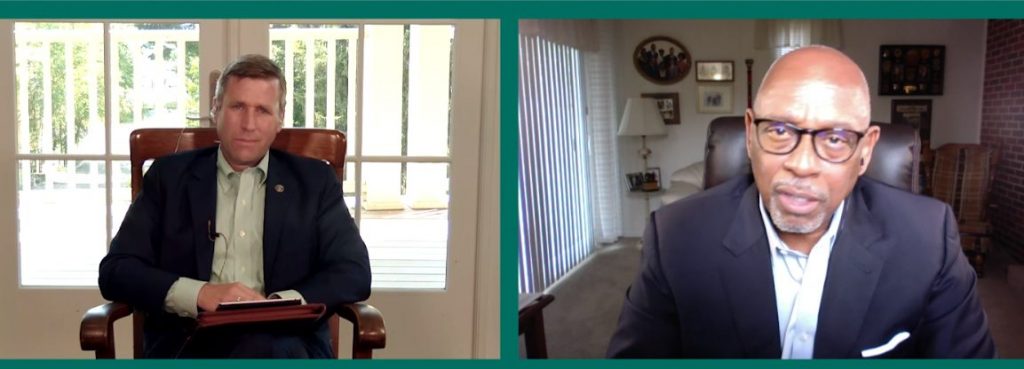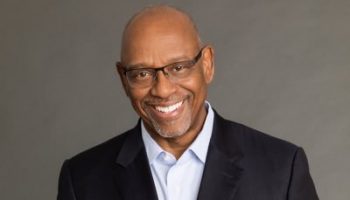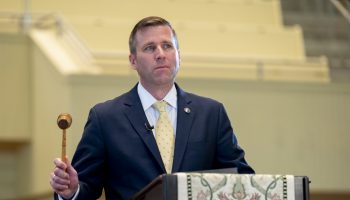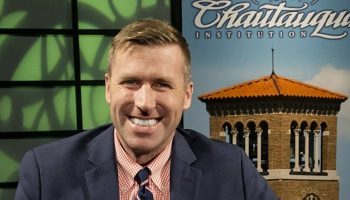
During the time of Jim Crow laws, elected officials used police departments to keep people of color oppressed.
“So that history is there, it is real. It is still real in the minds of many people who have shared those experiences, has been passed down from one generation to the next,” said Cedric Alexander, the former chief of police in DeKalb County, Georgia and former president of the National Organization of Black Law Enforcement Executives.
Those experiences were seen in the 1990s with the beating of Rodney King and in 2014 with the death of Michael Brown — both at the hands of police. And this strained relationship is still seen in 2020, Alexander said, with the killing of George Floyd by Minneapolis police officers.
“So here we are now, in 2020, with the horrible event that we all witnessed in front of us, a murder that took place shamelessly by four officers who appeared to just do have no moral compass, no sense of humanity and an inability to have any compassion to someone who was begging for their life, and even begging for their mother, as life was leaving (their) body — in people standing there on the streets begging officers to let him breathe … even up to the point that he could not breathe anymore,” Alexander said.
Alexander is a former member of President Barack Obama’s Task Force on 21st Century Policing — formed after Brown’s death in 2014 — and has served for four decades in law enforcement and public service. He is also the author of two books. He spoke with Chautauqua Institution President Michael E. Hill on Monday, July 6, on CHQ Assembly, delivering a presentation for the Chautauqua Lecture Series titled “Reformation of Policing and Systemic Racism,” opening Week Two’s theme of “Forces Unseen: What Shapes Our Daily Lives.”
Alexander discussed Ahmaud Arbery and Breonna Taylor’s deaths, the former reminiscent of a past of “running down someone and taking them into captivity” and the latter “irresponsible on so many levels.”
These events, as well as many others, led to conversations around change — in private industries, sports, schools and universities, law enforcement and all levels of government.
Hill’s first question was about why the recent protests have not subsided.
Alexander said that forces have been developing over time, particularly in recent years. The protests following Brown’s death in 2014 saw a diverse group of people in attendance. In the protests following Floyd’s death on May 25, 2020, there has been a resurgence of young people and multiple generations “who are all taking a stand against racism in this country, against sexism, against homophobia, against all the -isms that are out there.”
Social media plays a role, Alexander said, allowing thousands of people to organize like never before. Social media also contributed to the rapid sharing of cell phone footage taken of Floyd’s arrest and death, which was witnessed by people across the United States, and around the world.
“Anybody who had any type of humanity about themselves, it rips your heart out of your chest, and we knew, at that very moment, that something very different needs to happen in this country,” Alexander said.
People of color often weren’t believed when they told their experiences of racism until body cameras and cell phone cameras were invented, Alexander said. He also said that people are not only talking about change they would like to see, but are also taking action to make change happen.
“I am so proud to be an American. I’m so proud to be a part of a country that is 244 years old, and in spite of the challenges that we … struggle through in our short period of time on this planet, we have accomplished a lot,” Alexander said. “But we still have a lot of work to do.”
Hill asked about the main pillars of Obama’s Policing Task Force, and how they connect with current issues.
In 2014, Obama convened a group of stakeholders to create a roadmap of how to develop relationships between police and the community. That group, including Alexander, traveled around the country collecting information from human rights groups, civil rights groups, police unions, academics and others. Two months later, Obama signed off on the report, issued around the country to help police departments and communities develop bonds.
For Alexander, one of the most important pillars of that project was building relationships, trust and legitimacy between police and the community. He said that public safety depends on communities and police working intimately together, and that many police departments continue to work and improve upon these relationships.
Hill then asked how reform would help police officers lead more balanced lives, coupled with their very difficult jobs.
Alexander said that with such a job, stress is built over time, affecting a person consciously and unconsciously. This stress may cause marital or family problems, as well as aggravate pre-existing conditions. Alexander said that there should be an officer assistance program, which officers can use confidentially, and have a psychological assessment each year or every couple years, “not as a way to get them off the job, but a way to keep them healthy while they’re on the job.”
The conversation then shifted to questions from the audience. One of the questions was about police militarization.
Alexander said that the “military-style look” has its place in American policing only under certain conditions, such as deploying SWAT teams to combat terrorists. He said military equipment is not acceptable as a response to peaceful protesting.
“So you have some little small town in Georgia, Alabama, Florida, wherever, they’ve got what would appear to be tanks, they’ve got all kinds of weaponry … it gives the impression that we’re at war with our communities,” Alexander said. “We’re not at war. We’re not”
The report from the Task Force on 21st Century Policing recommended that in order to acquire military equipment, police departments needed to show why they needed such items, confirm that they’d been trained in their usage, and demonstrate how the equipment would help the community.
In the past, Alexander said, “(the equipment was) just passed out. No policy, no training, no nothing, and departments just decide” whatever they want, and however it should be used.
The last question was what everyone could do, especially during the COVID-19 pandemic, to make America’s democracy stronger.
Alexander said each person needs to take individual responsibility.
“We all of us harbor some bias towards some person, place, or thing. And if we do, we need to be able to acknowledge it,” he said. “And once we acknowledge it, we need to be able to engage it.”




